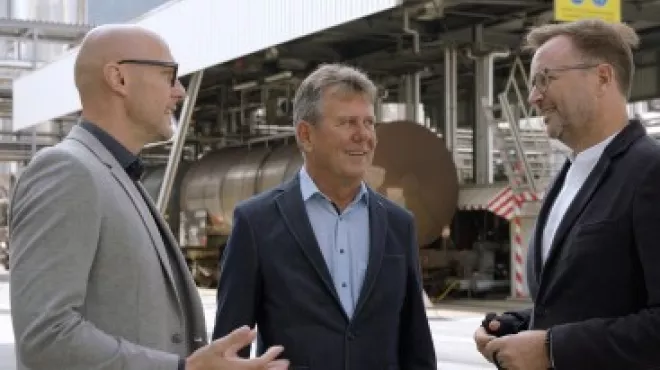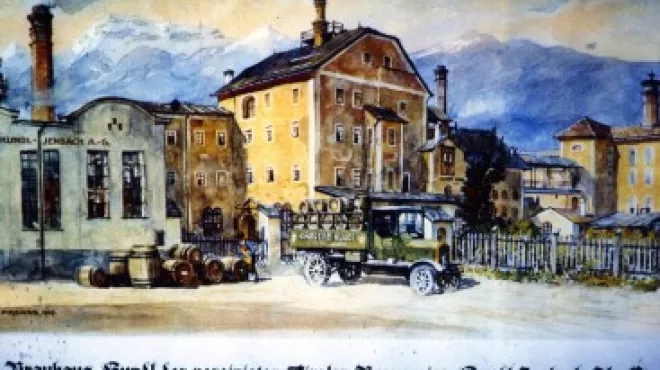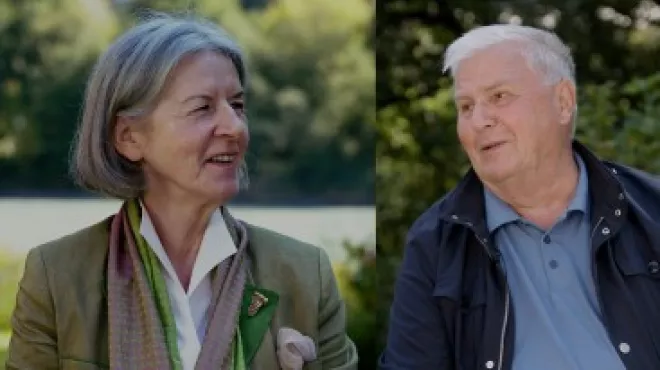Eine leerstehende Anlage gab den Ausschlag dafür, dass die ehemalige Biochemie 1995 ins Biosimilar-Geschäft einstieg. Biosimilars waren zu dieser Zeit eine komplett neue Produktklasse. Wie werden sie entwickelt, wie hergestellt und zugelassen? Welche Devices sind sinnvoll? Viele Fragezeichen und viele Herausforderungen. Die Teams in Kundl/Schaftenau nahmen sie an.
Biosimilars sind Nachfolgeprodukte biotechnologisch hergestellter Arzneimittel, sogenannter Biologika. Sie stellen heute die oft einzige Therapieoption für lebensbedrohliche oder die Lebensqualität einschränkende Erkrankungen wie Krebs oder Autoimmunerkrankungen dar.
Ingrid Schwarzenberger übernahm 2001 die Leitung der Zulassungsabteilung (Regulatory Affairs Biopharmaceuticals) und brachte mit ihrem Team das erste Biosimilar überhaupt zur Zulassung. Gemeinsam mit den Behörden entwickelten sie Anforderungen und Richtlinien.
Video: Ingrid Schwarzenberger
Sabine Fürtinger ist als Operations Manager Aseptics in Schaftenau tätig. In ihrer Laufbahn spielen Biosimilars seit rund 20 Jahre eine zentrale Rolle. Beim weltweit ersten Biosimilar war sie an der Entwicklung eines Pens beteiligt, mit dem sich Patientinnen und Patienten – auch Kinder – das Arzneimittel selbst verabreichen können.
Video: Sabine Fürtinger
Richard Hözl, Technical Fellow Zellkultur Schaftenau, arbeitet seit knapp vier Jahrzehnten im Unternehmen. Während biopharmazeutische Substanzen in Kundl mittels mikrobieller Methoden hergestellt werden, ist Schaftenau bekannt als Kompetenzzentrum für moderne Zellkultur. Diese baute Richard Hölzl von Anfang an maßgeblich mit auf.
Video: Richard Hözl
Aus Kundl und Schaftenau kommen heute neben Biosimilars auch zahlreiche innovative Biologika für Novartis.
Uwe Demelbauer, Global Head Drug Substance Development Biologics, entwickelt mit seinem Team die Prozesse zur Produktion der entsprechenden Wirkstoffe – und auch hier ist Tradition Voraussetzung für Innovation und Basis für bahnbrechende Erfolge.
Video: Uwe Demelbauer
Trailblazers. Biosimilars and biologics open up new horizons
A vacant production plant was the reason why the former Biochemie entered the biosimilar business in 1995. Biosimilars were a completely new product class at that time. How are they being developed, how are they being manufactured and approved? Which devices would make sense? Many questionmarks and challenges. The teams in Kundl/Schaftenau took them on.
Biosimilars are successor products of biotechnologically produced medicines, so-called biologics. Today, they are often the only therapy option for life-threatening or quality-of-life-limiting diseases such as cancer or autoimmune diseases.
In 2001, Ingrid Schwarzenberger took over as head of the Regulatory Affairs Biopharmaceuticals Department and, together with her team, brought the first biosimilar ever to approval. In cooperation with the authorities, they developed requirements and guidelines.
Video: Ingrid Schwarzenberger
Sabine Fürtinger is Operations Manager Aseptics in Schaftenau. Biosimilars have played a central role in her career for around 20 years. With the world's first biosimilar, she was involved in the development of a pen that enables patients – including children – to administer the medicine themselves.
Video: Sabine Fürtinger
Richard Hözl, Technical Fellow Cell Culture Schaftenau, has been with the company for almost four decades. While biopharmaceutical substances are being produced in Kundl using microbial methods, Schaftenau is known as a centre of excellence for modern cell culture. Richard Hölzl was instrumental in establishing this facility from the very beginning.
Video: Richard Hözl
Today, Kundl and Schaftenau are producing not only biosimilars, but also numerous innovative biologics for Novartis. Uwe Demelbauer, Global Head Drug Substance Development Biologics, and his team develop the processes for producing the active pharmaceutical ingredients – and here, too, tradition is a prerequisite for innovation and the basis for groundbreaking successes.
Video: Uwe Demelbauer



